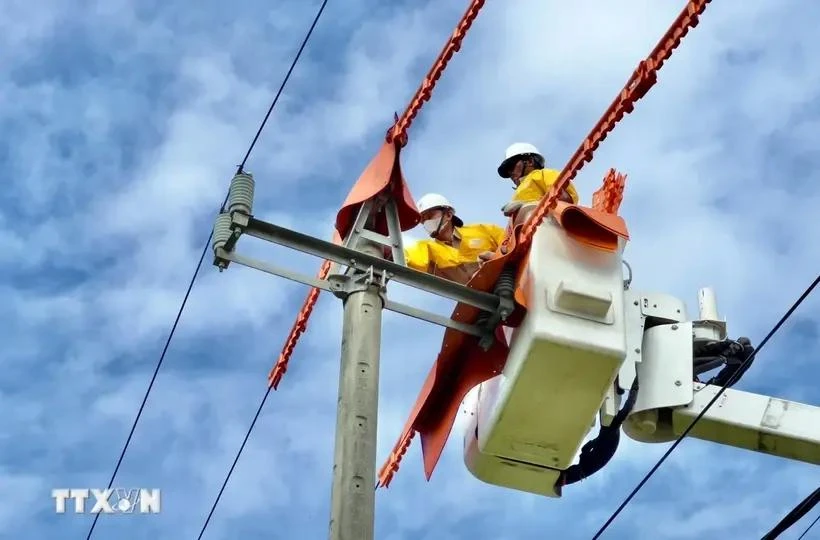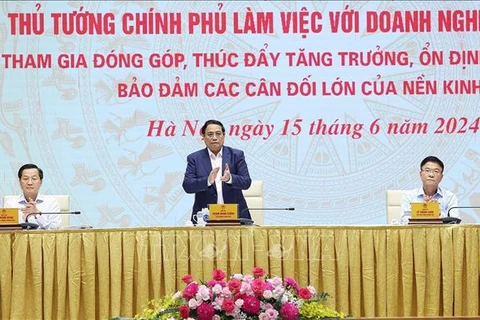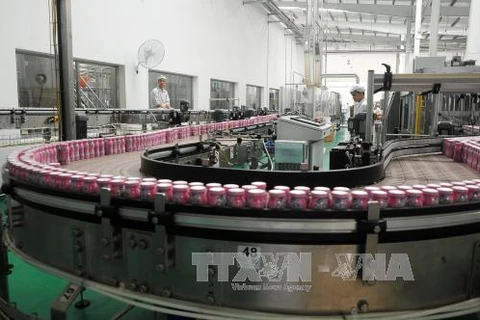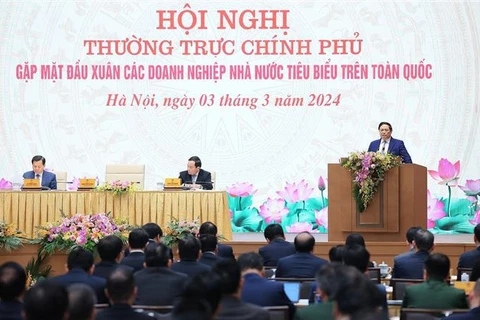
Hanoi (VNA) - After nearly 40 years of "Doi moi" (Renewal), the State-run economic sector has developed strongly, contributing significantly to building and safeguarding the Fatherland, maintaining macro-economic stability and boosting socio-economic development, an official from the Vietnam Institute of Economics (VIE) told a workshop in Hanoi on July 10.
Dr. Pham Anh Tuan, Deputy Director in charge of the VIE under the Vietnam Academy of Social Sciences (VASS), said that State-owned enterprises (SOEs) play a key role in such fields as electricity, petrol, oil and gas, telecommunications, information technology, transportation, finance, and banking. However, their operations still face numerous limitations, including contributions having yet to match their potential and competitiveness not as high as expected, he pointed out.
Dr. Pham Sy An from the VASS highlighted that in the energy industry, SOEs make up approximately 87% of the electricity production, over 84% of the petrol retail sale, 100% of the crude oil market, and 70% of the liquefied natural gas (LNG) market. They meet 70% of the demand for petrol products and 70-75% of the need for fertilisers.
Meanwhile, Dr. Vu Hoang Dat from the VIE said that Vietnam has made significant strides in restructuring and reforming SOEs as seen in the fact that they have been indeed scaled down in accordance with the Party and State's directives, but they still plays a crucial role in the economy.
He also stressed that in terms of finance, SOEs tend to perform better than domestic and foreign private ones. This could be attributed to better asset management, the retaining of well-performing enterprises during the restructuring process, and their presence in the sectors they are strong at such as mining, oil and gas, telecommunications, and finance - banking.
In addition, SOEs do not significantly differ in scale from those with foreign direct investment. Therefore, they are not excessively disadvantaged in competition when it comes to scale. In some industries, they also have higher capital readiness compared to foreign-invested firms.
Despite certain challenges, the sector still has a crucial role to play and substantial potential for further development in the coming time, Dat remarked.
At the workshop, experts, scientists, and officials looked into outstanding issues in the development of the sector since 1986. They also suggested some viewpoints and solutions for its development by 2030 with a vision to 2045./.






















